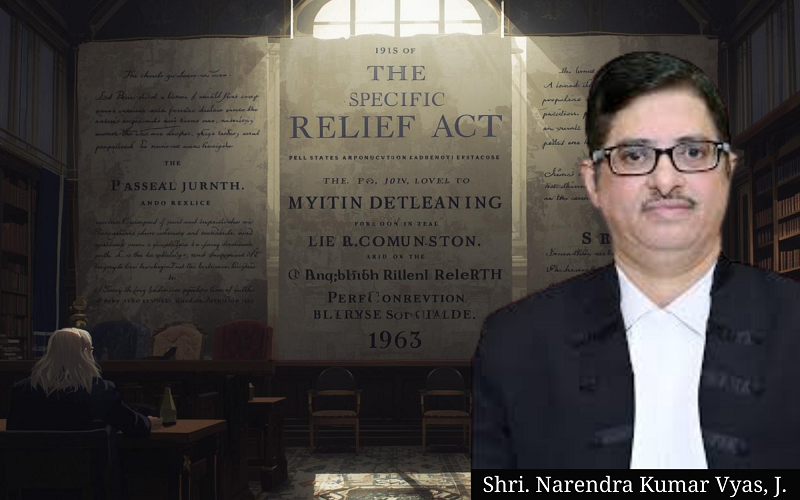Understanding the Judicial Principles Governing Specific Relief Act, 1963 and the Role of Adverse Inference in Civil Litigation
In the realm of civil litigation, this case serves as a seminal example of the discretionary nature of specific performance under the Specific Relief Act, 1963. It highlights the judicial principles guiding courts in granting or denying specific performance, particularly in disputes involving sale consideration and possession. The Chhattisgarh High Court's judgment, delivered by Shri Narendra Kumar Vyas, J., underscores the importance of readiness and willingness to perform contractual obligations and the necessity of substantiating claims with credible evidence.
Context and Background
The dispute arose from an agreement executed on March 20, 2001, wherein the plaintiff sought specific performance of a contract concerning a rice mill property. The plaintiff claimed to have paid the entire sale consideration and received possession, but the defendant contested these claims, alleging coercion and discrepancies in the agreement terms. The trial court initially decreed specific performance in favor of the plaintiff, prompting the defendant to file an appeal challenging the judgment.
Judicial Discretion under the Specific Relief Act
Section 20 of the Specific Relief Act, as it stood before the 2018 amendment, embodies the discretionary nature of decreeing specific performance. The court is not obligated to grant such relief merely because it is lawful; rather, it must exercise sound and reasonable discretion guided by judicial principles. In this case, the appellate court emphasized that the trial court erred in granting specific performance due to serious disputes regarding sale consideration and possession, which were inadequately addressed by the plaintiff.
Importance of Proving Readiness and Willingness
A critical aspect of specific performance is the plaintiff’s readiness and willingness to fulfill contractual obligations. The judgment highlighted that the plaintiff failed to substantiate claims of having paid the full sale consideration and receiving possession. The absence of evidence, particularly the failure to examine key witnesses involved in the alleged payment and execution of the receipt, led the appellate court to draw adverse inferences against the plaintiff under Section 114(g) of the Indian Evidence Act, 1872.
Adverse Inference and Best Available Evidence
The principle of adverse inference plays a pivotal role when a party withholds crucial evidence. Courts may draw negative conclusions if a party fails to present the best evidence available, as seen in this case. The plaintiff's inability to produce witnesses who could corroborate the transaction details led to doubts about the existence and authenticity of the money receipt, ultimately undermining the claim for specific performance.
Comparative Hardship and Inequitable Enforcement
The judgment also addressed comparative hardship, a concept embedded in Section 20, which allows courts to deny specific performance if it would cause unforeseen hardship to the defendant. The appellate court noted that enforcing the contract under the disputed circumstances would be inequitable, aligning with precedents that emphasize discretionary relief should not be granted when it imposes undue hardship or provides unfair advantage.
Conclusion
The case of Smt. Nirmala Tanwani v. Sunil Chandra Jeevanmal serves as a cautionary tale for litigants seeking specific performance. It underscores the necessity of proving readiness and willingness, presenting credible evidence, and understanding the discretionary nature of specific relief. The judgment reinforces that courts must carefully evaluate the totality of circumstances, conduct of parties, and the equitable implications of granting specific performance. As legal practitioners and scholars reflect on this case, it becomes evident that the principles governing specific relief are as much about legal entitlement as they are about fairness and judicial discretion.
Smt. Nirmala Tanwani v. Sunil Chandra Jeevanmal, (Chhattisgarh) : Law Finder Doc Id # 2753043




